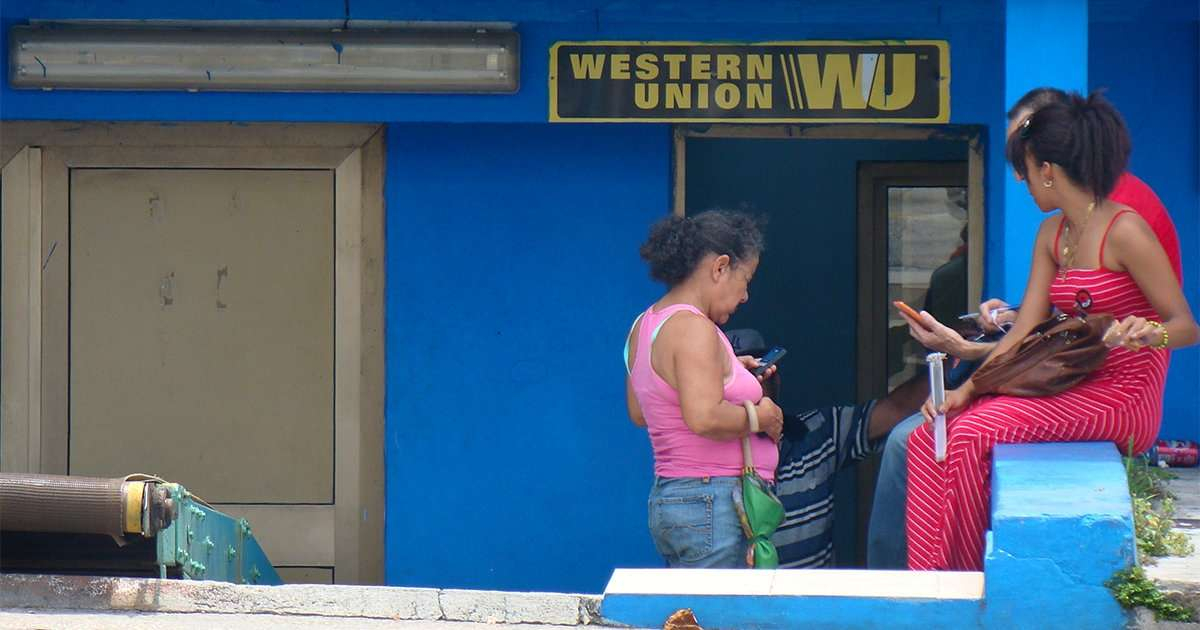
A study by economist Emilio Morales revealed that in the last 30 years Cuba has received more than50 billion dollars in cashin remittances and others50,000 million in consumer goods.
"In30 years of exile has sent Cuba a total of52,251.99 million dollars in cash, and others50,000 million in consumer goods"says the investigation, published on the portalCuba 21st Century.
In the first stage (1991-2006), during the crisis known as the "Special Period", Cuban emigrants sent around11,751 million dollars cash. 85% came from the United States and played a key role in the development of the Cuban entrepreneurial movement, highlights the expert.
The second stage (2007-2018) was even more impactful, with remittances reaching a volume of 31,311.47 million dollars in cash. In this period, shipments continued to support Cuban entrepreneurs.
The third stage (2019-2023), however, has witnessed a significant decline in remittances, with a drop of 70.83% in 2021 compared to 2019. This indicates a process of dismantling dependence on remittances , driven in part by the Cuban diaspora and the island's residents.
An example of this is the year 2022, when remittances were 2,040.25 million dollars, a decline of 45.1% compared to 2019.
According to Morales, even though GAESA's perfect machinery of citizen control and enrichment has been operating for 30 years, the diaspora itself and residents on the island have promoted the aforementioneddismantling this dependency.
Despite the transformative potential of capital injections in these 30 years, the Cuban regime chose to consolidate itself as a "post-communist mafia state" with an elite that governs the country as a private organization that appropriates public resources, including tourism, communications, remittances and professional exports; and the exiles have refused to continue contributing to such empowerment.
For the expert, remittances "have been the juiciest, interest-free line of credit that managed to accommodate the autocracy that controls power in Cuba to itsconvenience and interests".
Likewise, it clarifies that the amount of these remittances "is an indication of the investment potential of the diaspora in the future reconstruction and development of the island once the political and economic freedoms necessary for this exist and which today continue to be non-existent."
In his article, titled "Remittances, GAESA undermines the prosperity of Cubans," he explains that remittances in Cuba are the financial support for the subsistence of millions of Cubans; but that the methodology consolidated by the Business Administration Group S.A. (known as GAESA) for its appropriation has propped up a regime that, despite this constant injection of capital, collapses due to its own incompetence.
At the time, authorize the sending offamily remittances to Cuba It implied a very great risk for the Cuban dictatorship from a political point of view. However, allowing remittances, as well as foreign investment and international tourism, were calculated risks that the government decided to take based on the survival of the regime, he emphasizes.
Regarding the real financial potential of the Cuban diaspora to quickly transform the country if political and economic freedoms existed, he says that it is estimated that in a period of 24 to 36 months, the diaspora could inject more than 20,000 million dollars into the Cuban economy if A democratic and free market environment is established.
To achieve this, it is essential to free the market and entrepreneurs from the current economic regulations that suffocate the potential of the productive forces on the island.
Morales asserts that legally recognizing private property and allowing companies to invest in any sector, select partners, and export and import directly are key steps toward a prosperous future for Cuba.
Ultimately, it is the Cubans residing on the island, in collaboration with their relatives abroad, who can be the promoters of a new free business fabric that would not only improve the quality of life of the population, but would also contribute to the reconstruction and national development, he highlights.
What do you think?
SEE COMMENTS (2)Filed in: